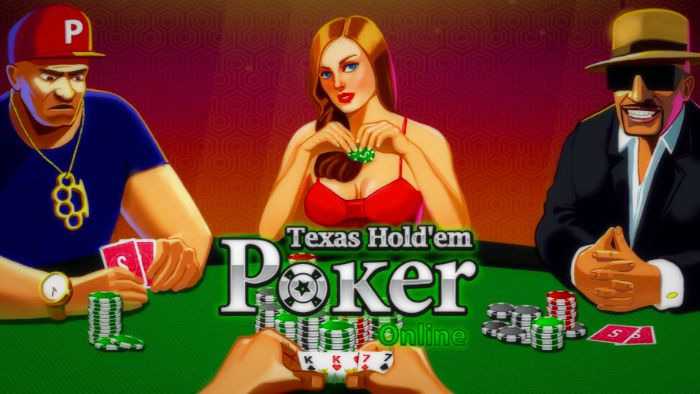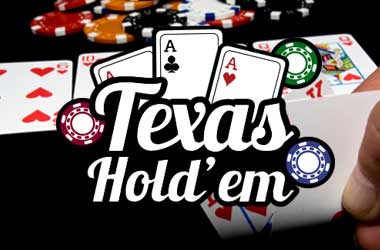So you're eager to play cards for money, much like in the Wild Wild West, but want to remove the threat of guns pointed at you under the table ? Well then you've landed on the right website, as we cater to the safest remaining US – Friendly gaming sites. These United States Texas Holdem sites for real money are enjoyable at no risk, and are non-rigged for those seeking to make real money deposits. In fact, much of the best rising poker phenoms have accounts with these brands. Where else could we play, considering the tightening selection offered to USA -Facing players.
We would like to show you a description here but the site won't allow us. Play Texas Holdem Poker for Real Money Online Internet gaming in the U.S. Has been legal and has enjoyed ever-widening popularity, since 2002. Jan 29, 2021 The poker room at MGM Grand Detroit features 17 tables with Texas Hold'em and Omaha action. There are bounty tournaments three days a week and promotions include splash pots, bad beat jackpots and hot-seat drawings. MotorCity Casino Hotel. The MotorCity Casino Hotel, in Detroit, features a 17-table poker club spreading Texas Hold'em. Play online Texas Hold'em for free. Many of the best online poker sites offer free poker games that you can play without wagering real money. These aren't just demo games, though – poker freerolls allow you to play real money Texas Hold'em online, free of charge! There are many real money online poker games and many free games, but there are no games quite like Poker Live Pro. With Poker Live Pro, you get all the authenticity of a real money game with none of the cost, making it the best option for playing free poker online.
Legal Status of Online Poker in the United States
Online gambling in general has been a dominant issue throughout the United States ever since the Unlawful Internet Gambling Enforcement Act (UIGEA) was passed in 2006. Since then, American online poker players were limited in their selection of safe, secure card gaming sites that would accept their memberships, process their deposits and grant their withdrawals in a timely manner. In 2011, the situation utterly imploded.
Best US Friendly Poker Site for 2020!
- Top USA Holdem Site
- Excellent Payment Processing
- Play Real Money Texas Holdem
- Fast Cashouts
Compatible with:- Texas Holdem for Real Money
- Best Texas Holdem Poker Site
- Variety of Poker Bonuses
- Very Fast Cashouts
Compatible with:- Play Poker For Real Money
- 100% up to $2,500 Bonus
- Loose Games
- Fast Cashouts
Compatible with:- Top USA Holdem Site
- Excellent Payment Processing
- Play Real Money Texas Holdem
- Fast Cashouts
Compatible with:- $88 Free Bonus
- Large Real Money Poker Site
- Excellent Reputation
- High Quality Real Money Games
Compatible with:BONUS 100% up to €140
The Black Friday of Online Poker
April 15, 2011 – known throughout the online poker community as Black Friday – the US Department of Justice officially seized control of the world's largest, US-facing online poker sites, including titans PokerStars and Full Tilt Poker. Not only did it leave American poker players with no entirely trustworthy options for playing their favorite card games online, it resulted in hundreds of millions of dollars being frozen in cyber accounts by the US government. From casual players to high-profile poker pros, there were countless individuals who could no longer access their tied-up poker funds. To this day, American ex-members of Full Tilt Poker are still waiting to receive their funds.
Push for Online Poker Legislation on the Rise
After Black Friday, it became more apparent that the need for online poker regulation on a federal level was paramount. Senator Harry Reid (D-Nev), along with Texas Representative Joe Barton, took long strides in congress, but were struck down time and again. Unfortunately, that continues to be the story in regards to federal regulations, but as the timeline progressed, individual states began realizing a lot more opportunities.
Nevada, with the fierce desire to be the online poker mecca of the United States, actually went so far as to legalize online poker in June of 2011, just two months after the Black Friday incident, despite the fact that online gambling was still outlawed across the nation by federal law. Ever ingenious, the law makers in Nevada passed an online poker bill with the stipulation that it wouldn't go into effect until the very moment the US government made it legal to do so.
US DOJ Reverse Stance against Online Poker

Nevada's impatience was rewarded and a glimmer of hope was delivered to the card gaming masses when the US government unexpectedly reversed its stance on the legalities of online poker. The federal case against offshore operators revolving around Black Friday was based upon the UIGEA, which interpreted all forms of ‘remote gambling' as being illegal, per the Wire Act 1961 (which, at the time, related to telephone betting, as the internet was not even a twinkle in the eye of technology developers). On December 23, 2011, the DOJ overturned its former ruling that the Wire Act outlawed online gambling, opening the doors for individual states to enact their own laws in regards to online poker and other gambling formats.
Immediately, the American online poker community was abuzz with speculations as to what states, if any, would enact online poker laws, and it didn't take legislators long to ink proposals and push them towards the higher rungs of their state capitols. Due to current federal laws, states would only be given the right to decriminalize online gambling activities based on their current territorial laws, games offered and, more interestingly, on an intrastate level. That meant if a state that already allowed certain forms of gambling were to legalize the activity via the internet, they could only offer those gambling amusements to people within the borders of that state. That issue alone raised questions as to whether singular states had enough interested, legal-age population to support an online poker/casino industry.
Best USA Real Money Poker Sites



States Race to Legalize Online Gambling
As we already know, Nevada jumped the gun, legalizing online poker (but no other forms of online gambling for the time being) 6 months prior to the US concluding that individual states could decide the issue for themselves. On the morning of June 28th, 2012, Delaware became the first state to pass a bill legalizing online gambling in multiple forms, including online poker, casino games and the state lottery.
Law makers made quick work of the internet gaming bill, and Governor Jack Markell gave it his John Hancock the very morning it arrived on his desk, not even 24 hours after it was approved by the state Senate, (albeit by a very thin margin of votes). It took more than a year for the Diamond State to get from point A to point B, finally launching it iGaming market on October 31, 2013.
Next, it was New Jersey's turn to push for legal online gambling. Gov. Chris Christie refused to sign any bill that was too hastily revised, vetoing two attempts before he finally out his signature on a more thoughtfully detailed version of the New Jersey online gambling bill in February 2013.
First Legal US Online Poker Site goes Live

Nevada's impatience was rewarded and a glimmer of hope was delivered to the card gaming masses when the US government unexpectedly reversed its stance on the legalities of online poker. The federal case against offshore operators revolving around Black Friday was based upon the UIGEA, which interpreted all forms of ‘remote gambling' as being illegal, per the Wire Act 1961 (which, at the time, related to telephone betting, as the internet was not even a twinkle in the eye of technology developers). On December 23, 2011, the DOJ overturned its former ruling that the Wire Act outlawed online gambling, opening the doors for individual states to enact their own laws in regards to online poker and other gambling formats.
Immediately, the American online poker community was abuzz with speculations as to what states, if any, would enact online poker laws, and it didn't take legislators long to ink proposals and push them towards the higher rungs of their state capitols. Due to current federal laws, states would only be given the right to decriminalize online gambling activities based on their current territorial laws, games offered and, more interestingly, on an intrastate level. That meant if a state that already allowed certain forms of gambling were to legalize the activity via the internet, they could only offer those gambling amusements to people within the borders of that state. That issue alone raised questions as to whether singular states had enough interested, legal-age population to support an online poker/casino industry.
Best USA Real Money Poker Sites
States Race to Legalize Online Gambling
As we already know, Nevada jumped the gun, legalizing online poker (but no other forms of online gambling for the time being) 6 months prior to the US concluding that individual states could decide the issue for themselves. On the morning of June 28th, 2012, Delaware became the first state to pass a bill legalizing online gambling in multiple forms, including online poker, casino games and the state lottery.
Law makers made quick work of the internet gaming bill, and Governor Jack Markell gave it his John Hancock the very morning it arrived on his desk, not even 24 hours after it was approved by the state Senate, (albeit by a very thin margin of votes). It took more than a year for the Diamond State to get from point A to point B, finally launching it iGaming market on October 31, 2013.
Next, it was New Jersey's turn to push for legal online gambling. Gov. Chris Christie refused to sign any bill that was too hastily revised, vetoing two attempts before he finally out his signature on a more thoughtfully detailed version of the New Jersey online gambling bill in February 2013.
First Legal US Online Poker Site goes Live
It was a long road forged by millions of supportive hands that lead to the first real victory for American online poker players when Ultimate Poker dealt its first real-money poker hand on Tuesday, April 30, 2013. Based in Nevada under the operative wing of the Station Casinos group, Ultimate Poker was the only US regulated online poker room for 5 months leading up to the Nevada launch of WSOP.com on September 19, 2013.
In the two years that have passed since, Delaware and New Jersey have launched numerous online poker and casino websites, and Ultimate Poker made history once more by becoming the first US regulate iGaming site to go out of business. New Jersey's Ultimate Poker and Ultimate Casino websites shut down in September of 2014, followed by the closure of Ultimate Poker Nevada in November.
Other States Waver on Online Poker Regulation
Two states, California and Pennsylvania, are seriously considering the regulation of online poker.
In California, in-fighting between lawmakers, commercial card rooms and tribal gaming operators has prevented any bill from gaining traction. There are currently four bills moving through the legislative process (see below), but until all parties can come to a compromise, the outlook looks bleak.
- AB 9 – Assemblyman Mike Gatto (excludes horse tracks, bad actors)
- AB 167 – Assemblyman Reggie Jones-Sawyer (includes horse tracks, lenient on bad actors)
- AB 431 – Assemblyman Adam Gray (invokes legalization only, no specific regulatory guidelines)
- SB 238 – Senator Isadore Hall III (mirror text of AB 431)
In Pennsylvania, a dire need to reinvigorate gambling revenue is the key force behind a recently introduced bill to regulate online gambling in the states. It is aimed at giving licensed, land-based casinos the right to operate online poker and casino websites.
Poker Texas Holdem Real Money Online For Free
- HB 649 – Rep. John Payne (regulates online poker and casino games)
Poker Texas Holdem Real Money Online No Scams
| State by State Account of US Online Poker Laws Please choose a state below to learn more | ||
| Alabama | Lousiana | Ohio |
| Alaska | Maine | Oklahoma |
| Arizona | Maryland | Oregon |
| Arkansas | Massachusetts | Pennsylvania |
| California | Michigan | Rhode Island |
| Colorado | Minnesota | South Carolina |
| Connecticut | Mississippi | South Dakota |
| Delaware | Missouri | Tennessee |
| Florida | Montana | Texas |
| Georgia | Nebraska | Utah |
| Hawaii | Nevada | Vermont |
| Idaho | New Hampshire | Virginia |
| Illinois | New Jersey | Washington |
| Indiana | New Mexico | West Virginia |
| Iowa | New York | Wisconsin |
| Kansas | North Carolina | Wyoming |
| Kentucky | North Dakota | _ |

